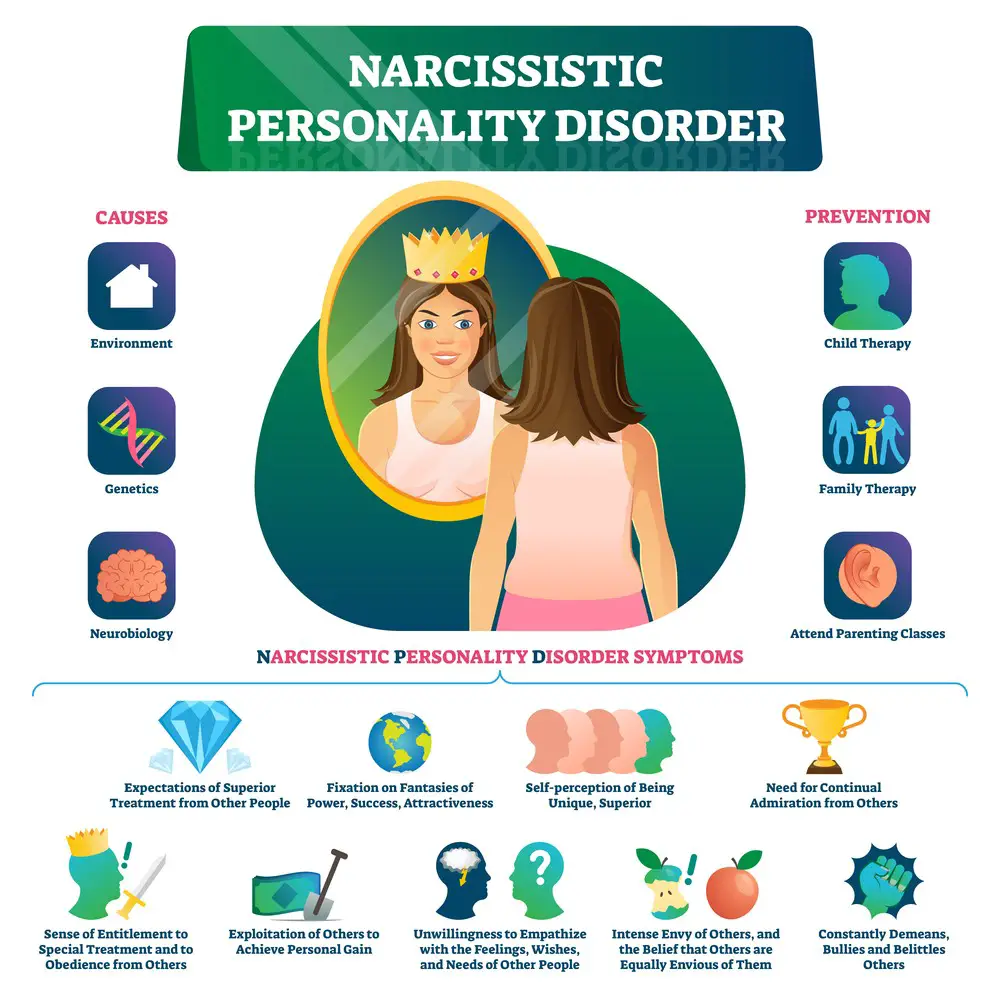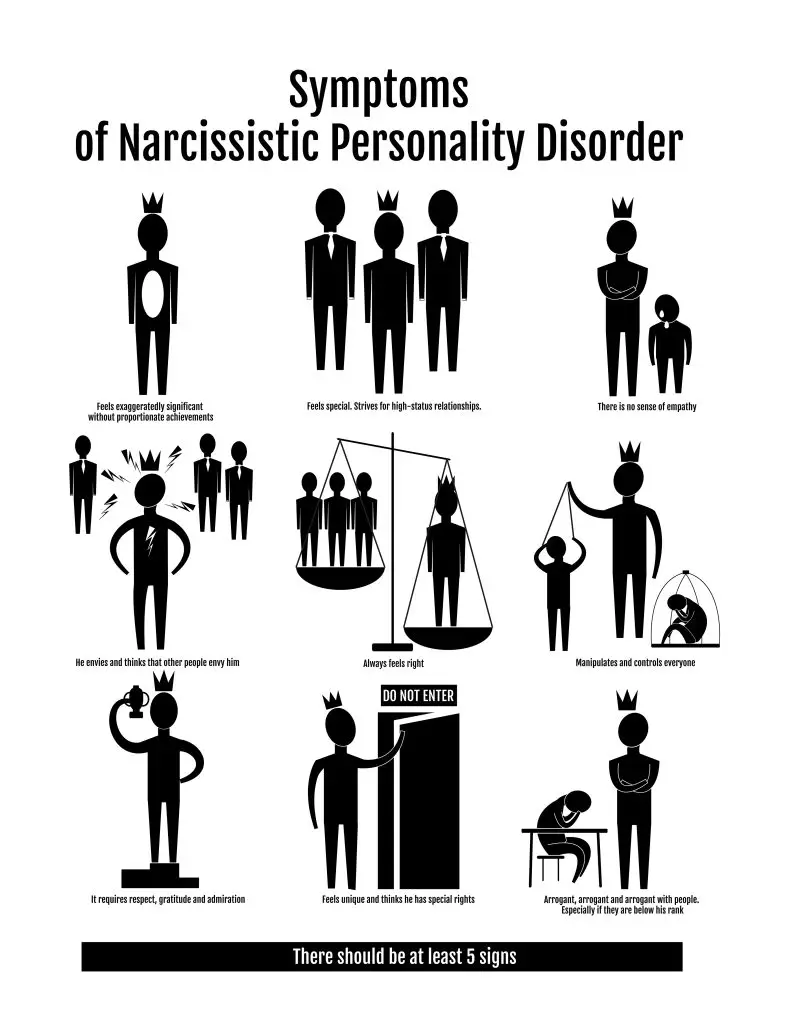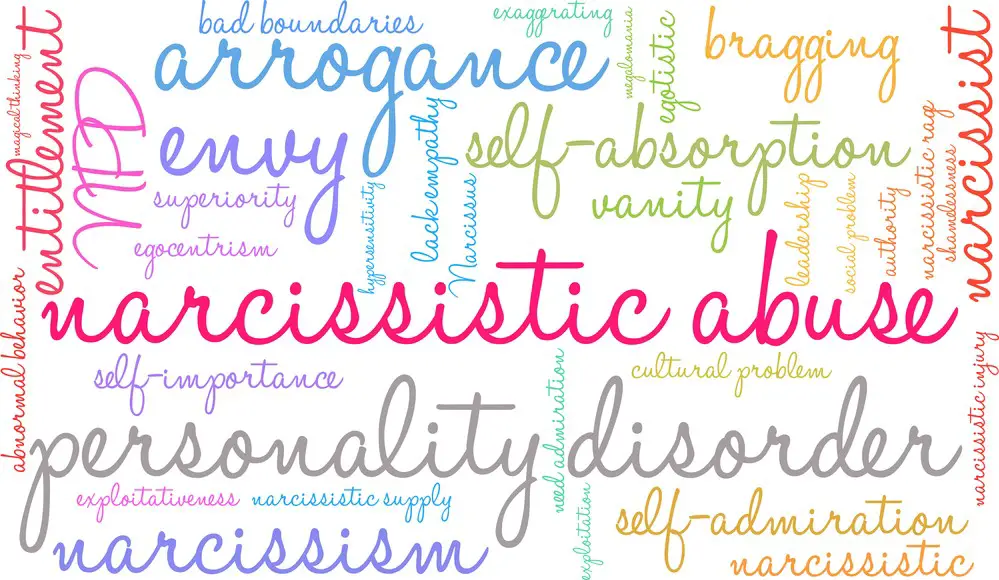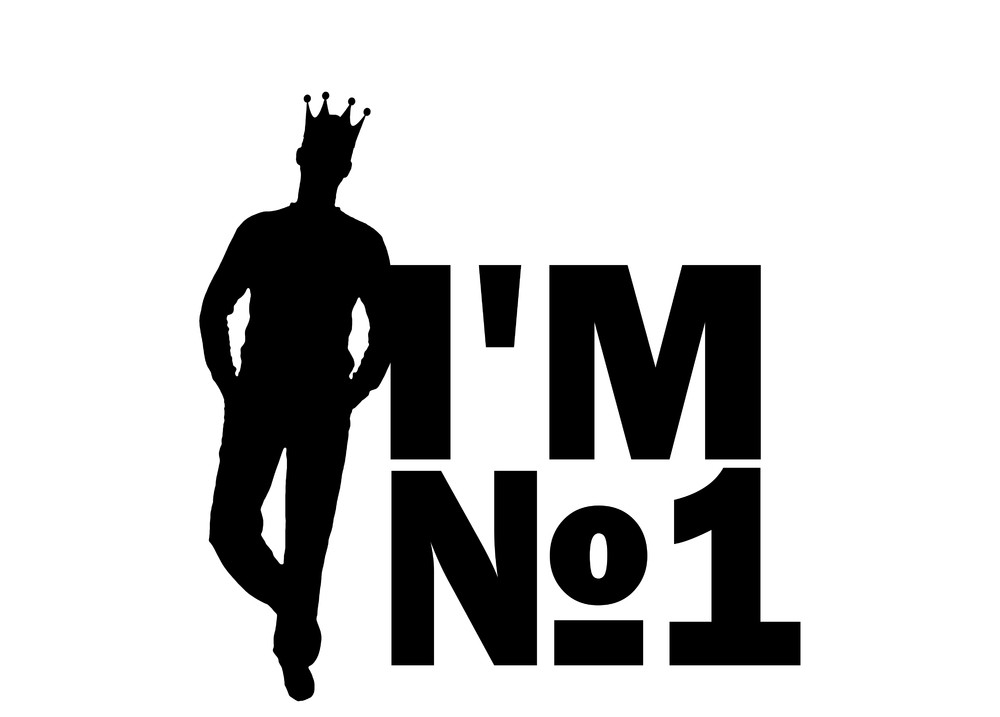Narcissistic collapse is a term that often comes up in discussions about relationships with narcissists, yet it remains shrouded in mystery and misconception. At some point, we’ve all encountered a narcissist, whether it’s at work, in our family, or a romantic relationship. These experiences can be challenging and emotionally draining, making it vital to understand what a narcissistic collapse entails.
This article aims to demystify this concept. We’ll explore what triggers a narcissistic collapse, its typical duration, and the signs to watch out for. Whether you’re dealing with a narcissist or just curious about the topic, this information is crucial for navigating these complex dynamics.
Key Takeaways:
- Understanding Narcissistic Collapse: Grasping what it is and what typically triggers it.
- Duration Variability: How long it lasts can vary significantly depending on several factors.
- Recognizing the Signs: Key indicators that someone might be experiencing a narcissistic collapse.
- Coping Mechanisms: Tips for dealing with a narcissist who is undergoing a collapse.
 Understanding Narcissistic Personality Disorder
Understanding Narcissistic Personality Disorder
Narcissistic Personality Disorder (NPD) is a complex condition you might encounter either personally or through others around you. It is characterized by patterns of grandiosity, a need for admiration, and a lack of empathy toward others. Let’s break this down so you can better understand.
Definition and Characteristics
Narcissistic Personality Disorder is a mental health condition that can dramatically impact a person’s life and relationships. Here are some key characteristics that define this disorder:
- Grandiosity: A narcissistic person often has an inflated sense of self-importance.
- Superiority and Entitlement: They may believe they are superior to others and have a persistent sense of entitlement.
- Fragile Self-Esteem: Despite a grandiose self-image, the self-esteem of someone with NPD can be pretty fragile.
- Manipulative Behavior: These individuals can be manipulative, using others to achieve their ends without considering their feelings.
Key Takeaway: Recognize that a blend of exaggerated self-image and sensitivity to critique marks the temperament of someone with NPD.
 Types of Narcissism
Types of Narcissism
Different types of narcissism manifest in varied ways, so here’s how to distinguish them:
- Grandiose Narcissists: Bold, assertive, and confident, they often display dominance and seek to win at all costs. The show of grandiosity is central.
- Vulnerable Narcissists: These individuals might seem timid and could struggle more visibly with low self-esteem, responding with defensiveness to perceived criticism.
Key Takeaway: Whether grandiose or vulnerable, each type of narcissist seeks validation and reacts strongly to feedback.
Narcissistic Supply and Validation
Narcissistic supply refers to the attention and admiration that individuals with NPD crave:
- Seeking Validation: They continuously seek validation from their environment to sustain their self-worth and grandiose self-image.
- Responsive to Praise: Positive reinforcement, like compliments, can temporarily stabilize their self-esteem.
- Adverse Reaction to Criticism: Negative feedback can result in lashing out or even a narcissistic collapse, where their sense of self deflates dramatically.
Key Takeaway: A narcissistic person relies heavily on external validation, making them susceptible to severe swings in mood and self-perception based on others’ responses.
 The Phenomenon of Narcissistic Collapse
The Phenomenon of Narcissistic Collapse
Narcissistic collapse is an intense and difficult period for individuals with narcissistic tendencies. It typically occurs when their self-esteem is significantly threatened.
Triggering Factors
Narcissistic collapse can be triggered by a variety of factors that pose a threat to the narcissist’s self-image. Some common triggers are:
- Public humiliation: Exposure of failures or flaws that damage their reputation.
- Rejection: Being rejected or abandoned by someone they value.
- Failure: Encountering setbacks in professional or personal spheres.
- Loss of control: Situations where their usual manipulation tactics are ineffective.
Key Takeaway: Understanding what initiates the collapse can help you identify and anticipate potential issues.
 Signs and Symptoms
Signs and Symptoms
Individuals experiencing a narcissistic collapse may display various emotional and behavioral changes, such as:
- Narcissist rage: Outbursts of anger when their sense of superiority is challenged.
- Defensiveness: Becoming overly sensitive to criticism and often reacting aggressively.
- Withdrawal: Isolating themselves from others to avoid further hurt or shame.
- Emotional instability: Experiencing a range of intense emotions like fear, insecurity, and hurt.
Key Takeaway: Recognizing these signs is crucial for addressing the underlying stress and preventing further psychological harm.
Stages and Duration
The timeline and progression of a narcissistic collapse can vary greatly depending on the individual and the severity of the triggering event. Typically, it involves:
- Initial shock and denial: Refusing to accept the reality of the situation.
- Chaos and disarray: The individual may spiral into emotional turmoil as defenses fail.
- Withdrawal or reinvention: Either retreating from social circles or attempting to rebuild their reputation.
The duration of each stage is unpredictable and can last from days to months. It’s essential to approach this period with patience and understanding.
Key Takeaway: Appreciating that recovery from a narcissistic collapse is a process that will allow you to support the individual through their challenges.
 Psychological and Emotional Impact
Psychological and Emotional Impact
When a person experiences a narcissistic collapse, it’s like a sudden and profound earthquake in their psyche. This can have significant impacts not just on their emotional well-being but also on those around them.
Impact on Self and Others
The fall from narcissistic grandiosity to collapse often leads to intense feelings of shame and depression. You might see a drastic drop in self-esteem, and as someone on the outside, you could be affected by these changes, too.
- Self: Experiencing an internal sense of emptiness.
- Others: Being on the receiving end of erratic behaviors.
Narcissistic Rage and Aggression
When their sense of superiority is threatened, or their narcissistic supply is cut off, a narcissist can react with rage and aggression. This isn’t just about shouting; it can manifest as:
- Verbal attacks that are pointedly hurtful.
- Vindictive behaviors aim to regain control or manipulate situations.
Key Takeaway: Recognize that these reactions are about their loss of control, not you.
Emotional and Psychological Abuse
A narcissistic collapse often intensifies patterns of emotional abuse. It’s crucial to be aware of signs such as:
- Guilt-tripping to maintain a sense of control.
- Consistent lying creates confusion and instability.
Key Takeaway: The goal of this abuse often ties back to keeping others emotionally tied to the narcissist.
 Risk Factors and Harm
Risk Factors and Harm
When a narcissistic collapse occurs, you may be exposed to various risks that can significantly affect your well-being and daily functioning. It’s important to understand these risk factors and the potential harm that can take place during this period.
Self-destructive Behaviors
Narcissistic collapse often triggers a myriad of self-destructive behaviors as an individual grapples with the loss of narcissistic supply and the accompanying feelings of shame and humiliation. These behaviors might include:
- Substance Abuse: Turning to drugs or alcohol to cope with feelings of inferiority.
- Gambling: Engaging in risky gambles as a way of experiencing a sense of thrill or attempting to regain control.
- Aggressive Actions: Acting out physically or verbally due to feelings of rage or anger outbursts.
Key Takeaway: Protecting your mental health by recognizing these high-risk behaviors early is vital in mitigating their long-term effects.
 Effects on Relationships and Work
Effects on Relationships and Work
The upheaval caused by a narcissistic collapse extends beyond the narcissistic individual, profoundly impacting their relationships and professional life. Here’s what that may look like:
- Relationship Strain: Manipulation, gaslighting, and defensive mechanisms can push loved ones away, often resulting in isolation.
- Workplace Challenges: Experiences of humiliation and anger may lead to a defensive posture at work, causing conflicts and possibly jeopardizing your job stability.
Constant stress and anxiety may accompany these experiences, affecting your sense of self-worth and overall mental health condition.
Key Takeaway: It’s crucial to seek support, potentially through psychotherapy or suicide prevention resources, to navigate these troubling effects on your social and work life.
Coping and Recovery
When facing a narcissistic collapse, it’s crucial to address the complexities involved. Your path to recovery is multifaceted, involving personal resilience, professional support, and nurturing a solid support network.
Strategies for the Narcissistic Individual
Your journey to recovery begins with recognizing the need for change. Acknowledge the pain that the collapse has caused and consider the following steps:
- Reflect on Feelings: Unpack your emotions and understand their roots. It’s okay to feel vulnerable during this time.
- Accept Responsibility: Accepting some responsibility for the past can be challenging, but it’s a necessary step toward healing.
- Seek External Validation Appropriately: Rebuild your self-worth independently of others’ opinions while appreciating positive feedback.
- Develop Empathy: Understanding others’ feelings and perspectives can enhance your relationships.
Key Takeaway: Progress may be gradual, but perseverance can restore your self-esteem.
 Professional Help and Therapies
Professional Help and Therapies
To successfully navigate through a narcissistic collapse, it’s often essential to seek professional help:
- Psychotherapy: Engage in cognitive-behavioral therapy (CBT) or dialectical behavior therapy (DBT) to develop healthier thinking patterns.
- Group Therapy: Surround yourself with peers who can offer different perspectives on your behaviors and decisions.
Key Takeaway: Professional guidance can offer you strategies to manage depression, mood swings, and other challenges stemming from the collapse.
Support for Victims of Narcissists
If you’ve been affected by someone with narcissistic personality disorder, protecting your mental health is paramount. Consider the following:
- Establish Boundaries: Be clear on what you will and will not tolerate. Setting limits is crucial for your emotional well-being.
- Create a Support System: Connect with friends, family, or support groups who understand your experiences.
- Contact Support Lines: Don’t hesitate to contact organizations like the Crisis Text Line in moments of crisis.
Key Takeaway: Building a support network is a sign of strength, not weakness.
Frequently Asked Questions
Knowing the finer details of a narcissistic collapse can give you a clearer understanding of the condition and its implications. Below, you’ll find answers to some of the most common queries about this psychological phenomenon.
What are the signs of a narcissistic collapse?
When a person experiences a narcissistic collapse, they might show signs of extreme vulnerability, such as displaying unusually intense emotions or even adopting a victim mindset. This is a stark contrast to their usual self-assured façade.
- Key takeaway: Watch for drastic changes in self-esteem and behavior as warning signs of a collapse.
Can someone recover from a narcissistic collapse, and what does the process involve?
Yes, recovery is possible. The journey involves deep self-reflection, often with professional therapy, to rebuild a healthier sense of self-worth. Efforts may include setting boundaries, practicing empathy, and correcting cognitive distortions.
- Key takeaway: Recovery is a challenging yet achievable road with the proper support and self-work.
What typically triggers a collapse in someone with narcissism?
Triggers can vary widely but often involve situations that starkly challenge their sense of superiority, such as public failure, rejection, or facing consequences from past actions that contradict their self-image. It’s a blow to the very core of their identity.
- Key takeaway: A trigger is typically a situation that a person with narcissism perceives as a threat to their fragile self-esteem.
How does a narcissistic collapse impact a person’s behavior during a divorce?
During a divorce, an individual with narcissism may become highly unpredictable, switching between conciliatory gestures and aggressive behavior. They might use manipulation tactics or play the victim to gain sympathy or control.
- Key takeaway: Divorce can heighten the unpredictability in behavior due to the emotional turmoil of a narcissistic collapse.
In what ways can a narcissistic collapse lead to a breakdown or psychotic episodes?
A narcissistic collapse can lead to severe mental health issues, including a breakdown or psychotic episodes, as the individual struggles to cope with the shattered self-image and the unmanageable stress it can cause.
- Key takeaway: The psychological strain of a collapse can overwhelm an individual with narcissism, leading to severe mental health episodes.
What can be expected in the aftermath of a narcissistic collapse?
Post-collapse, you might notice a period of introspection or reform in behavior, though some individuals may instead double down on their narcissistic traits. Recovery is unpredictable, and each path is unique.
- Key takeaway: The aftermath may vary greatly; some find a path to healing, while others may retreat further into their narcissistic tendencies.
About Jacob Maslow
Jacob Maslow brings a personal touch to your understanding of narcissistic collapse. Through his firsthand experience, he’s navigated the rocky terrain of dealing with a high-conflict ex-partner. He knows the pain of having a once close relationship with his children become strained and distant, especially over the last nine months, something many can relate to.
- Background: Jacob’s ex-wife, profoundly narcissistic, intensified her troubling behavior as she aged. The alienation and refusal to cooperate with custody orders amplified, causing significant distress.
- Coping Strategies:
- Jacob finds solace in long daily walks to clear his mind.
- He manages his mental health with Lexapro and is an advocate for therapy, recently joining BetterHelp.
Driven by his experiences, Jacob has dedicated part of his life to helping others facing similar mental health and legal battles.
- Community Involvement: He runs a legal site to support individuals contending with non-compliant spouses and provides insights into co-parenting amidst conflict.
- Personal Reflection: As a therapy veteran, Jacob speaks authentically, offering strategies for those battling mental health issues.
The takeaway from Jacob’s story is resilience; despite challenges, one can find strength and support to maintain mental well-being and navigate legal complexities. You’re not alone in this journey; with the right resources, you can triumph over adversity.

- The Burnout Epidemic: Why We’re All Feeling Overwhelmed and How to Cope - February 9, 2024
- How to Live a Peaceful Life - February 9, 2024
- Useful Information You Should Know About Health Screenings - February 8, 2024
This site contains affiliate links to products. We will receive a commission for purchases made through these links.


 Understanding Narcissistic Personality Disorder
Understanding Narcissistic Personality Disorder Types of Narcissism
Types of Narcissism The Phenomenon of Narcissistic Collapse
The Phenomenon of Narcissistic Collapse Signs and Symptoms
Signs and Symptoms Psychological and Emotional Impact
Psychological and Emotional Impact Risk Factors and Harm
Risk Factors and Harm Effects on Relationships and Work
Effects on Relationships and Work Professional Help and Therapies
Professional Help and Therapies

